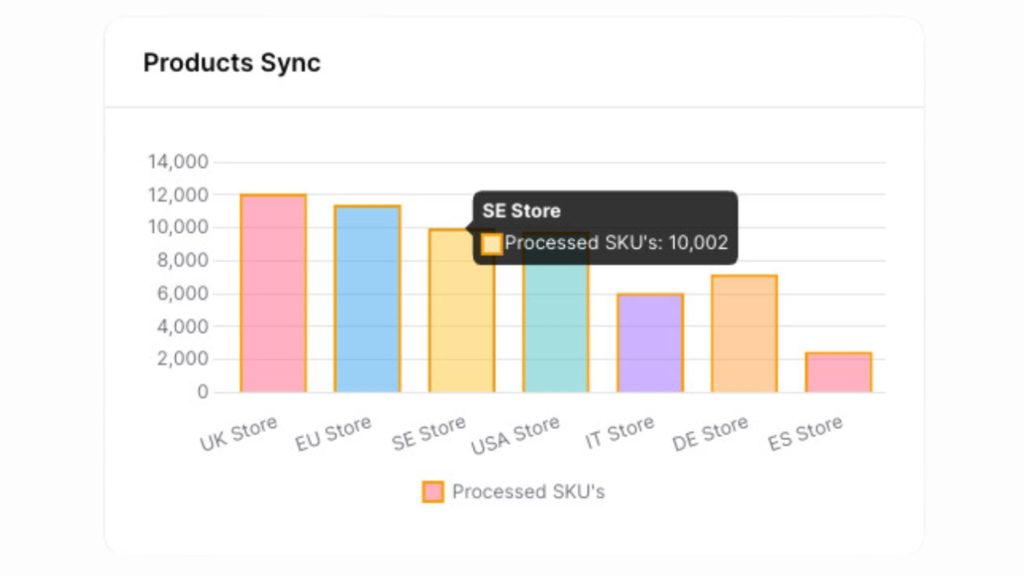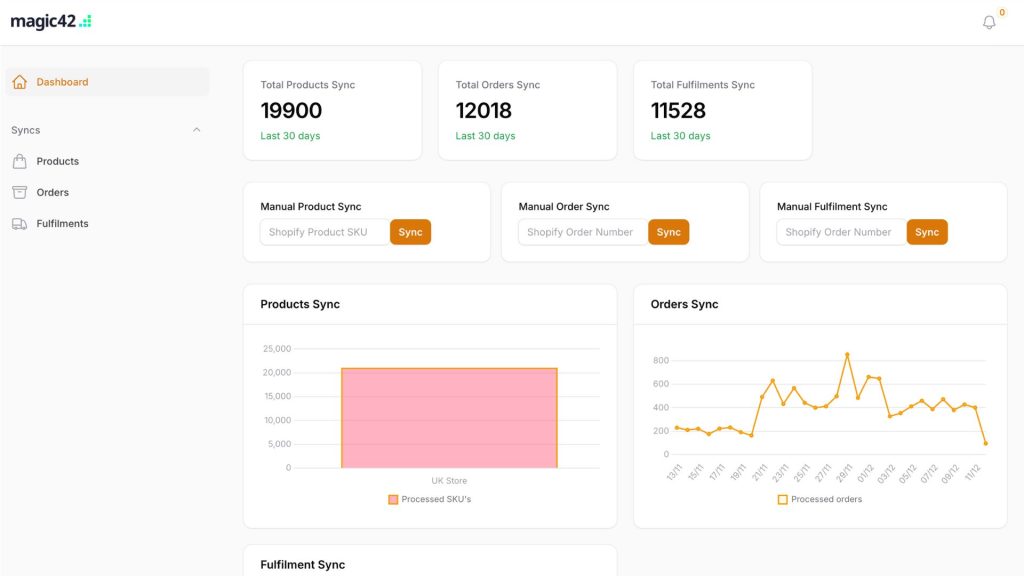
Managing an eCommerce business that’s well established often involves the use of multiple systems, which is why software integrations are crucial in unifying your business operations. Without adequate eCommerce integrations, you could be missing out on opportunities to improve efficiency and create a better customer experience.
By integrating your eCommerce platform with specialist management software such as for Enterprise Resource Planning (ERP), Customer Relationship Management (CRM), or accounting solutions, you can streamline system communication like never before. This helps create a central system that synchronises your software without the worry of disparate systems duplicating data. Whether you do your integrations directly or through a middleware app such as our iPaaS, we’ve outlined several other key areas that can help your eCommerce business:
One key advantage of integrating your eCommerce platform is improved communication and automated synchronisation between systems. For example, connecting your shop with an inventory management system ensures stock levels are reliably updated at scheduled intervals, reducing the risk of overselling or stock discrepancies. Similarly, integrations enable automatic order imports, financial data synchronisation, and other crucial workflows to run smoothly without manual intervention.
By streamlining these processes, integrations free up your team’s time, allowing them to focus on more strategic, value-adding tasks that drive business growth.

Manual data entry, such as uploading CSV files, is inherently prone to human error. However, eCommerce integrations help mitigate these risks thanks to automating data transfer between systems, ensuring accuracy and consistency.
Manual interventions can create issues such as order failed deliveries or the wrong product being sent out. issues may go unnoticed, leading to delays in resolution and customer dissatisfaction.
By connecting your platforms, businesses can eliminate these gaps, ensuring quicker updates and reducing errors across in their operational processes.
One of the significant benefits of integrating your eCommerce software is the faster movement of data. Many integrations facilitate near real-time data exchange, allowing order updates and fulfilment messages to be processed almost instantly. This automation ensures that orders are handled efficiently both inside and out of business hours, effectively keeping your store operational 24/7.
With seamless data flow between systems, customers receive timely updates on their orders, enhancing their shopping experience and increasing satisfaction. Faster turnaround times not only improve operational efficiency but also help businesses meet customer expectations in an increasingly on-demand market.
As your eCommerce business grows, so does the demand on your operations - from handling increased website traffic to managing a higher volume of transactions and data. Relying on manual order processing quickly becomes unsustainable, leading to inefficiencies, backlogs, and delayed customer deliveries. This is where a suitable eCommerce integration can help.
By implementing the right software integrations, your systems can automatically manage peak sales periods, prevent operational bottlenecks, and scale effortlessly alongside your business. Whether you’re processing hundreds or thousands of orders, integrations ensure your workflows remain efficient. Ultimately, this allows your business to grow without limitations.
One final example of how eCommerce integrations can help is by saving your business money. This starts from how an integration can synchronise inventory levels in near real-time and prevent the overstocking of slower moving products. However, this then extends to a whole range of data synchronisations and automations to make your systems more efficient.
Middleware apps, such as our eCommerce iPasS, can also connect with numerous platforms to automate processes and prevent costly mistakes such as incorrect shipments or duplicate orders. Middleware apps can also help reduce account costs by synchronising tax data with accounting systems, reducing the need for manual bookkeeping.

We have worked with numerous clients to successfully integrate their eCommerce platforms. These have provided unique challenges that we have been able to resolve with our iPaaS.
Examples include connections from Shopify, Magento, BigCommerce to Microsoft Business Central, Klaviyo and numerous ERPs. This can help with large updates of product catalogues to eCommerce websites, help automate marketing, or simply transfer order notes between systems.
Have you run an audit with your team to check what manual spreadsheet work is occurring? Unreliable current solutions? Escalating costs from solving operational issues?
When we were part of a successful retail business, we’d do this quarterly to be aware of any manual interventions. This helped us identify areas where we could streamline business operations.
If you are in need of integrating your systems and advice from eCommerce experts, why not get in touch with us at magic42?


